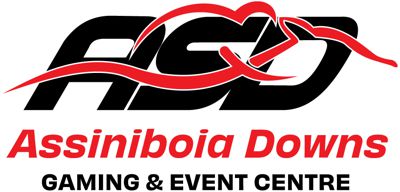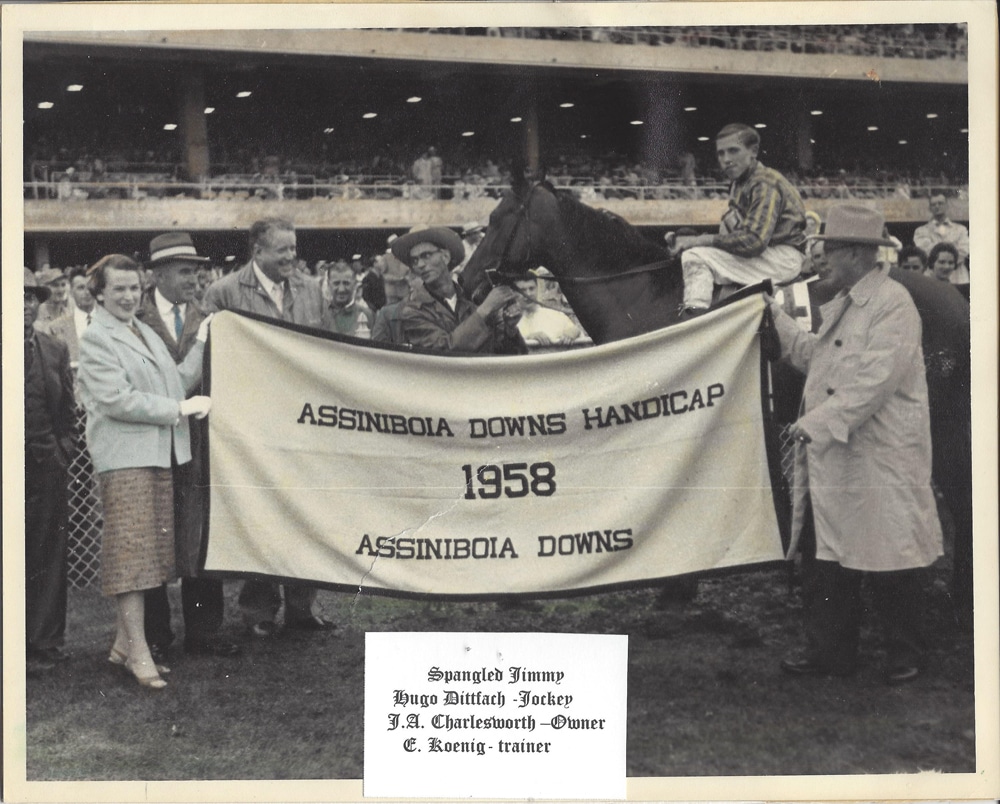
by Bob Gates
Whittier Park, Polo Park and Assiniboia Downs owe a huge debt of gratitude to the horsemen who travelled near and far to race their four-legged athletes in Winnipeg.
For the most part, these “out-of-towners” came from the central and mid-west United States, as well as from our neighboring provinces of Saskatchewan and Alberta. Sure we’d get the odd easterner and British Columbia native, but the shedrows at Whittier Park, Polo Park and the Downs were populated with licence plates from our western friends and various points south of the 49th parallel.
This week we’re going to look at a trio of Albertans who spent a lot of time racing at Polo Park and here, when the Downs was still in diapers. Let’s kick things off with Edmontonian, James Alfred, “Jimmy” Charlesworth.
In the 1950s Jim Charlesworth was one of western Canada’s racing establishment. Two of his best horses were Virginia Fair and his name sake, Spangled Jimmy, both of whom won the prestigious Winnipeg Futurity when it was held at Polo Park.
Virginia Fair was a dark brown multiple stakes-winning filly who had a stellar 2-year-old season, going 9-1-0- from 11 starts. Affectionately known as the “Sweetheart of the Prairies,” Charlesworth bought her sight-unseen from Jim Speers for $3,500. At two, the filly set a pair of track records and equaled three others. Included in her stakes victories were the 1952 Birdcatcher Stakes (Edmonton), the Winnipeg Futurity, and the 1953 Alberta Derby.
Spangled Jimmy was a multiple stakes-winning bay gelding, who won the Birdcatcher and Winnipeg Futurity in 1956. In 1957 he won the Canadian Derby (Edmonton) and in 1959 the Western Canada Handicap (Edmonton). He was one of the many “Spangled” horses owned by Charlesworth. In the 1960s Jim was winding down his operation, selling off racing and breeding stock, but he was still a regular visitor to Assiniboia Downs on Derby Day.
The late Jim Coleman offered this thought on Charlesworth: “The sport needs a Western Canada horseman, cast in the sporting mold of Jim Speers or Jim Charlesworth.”
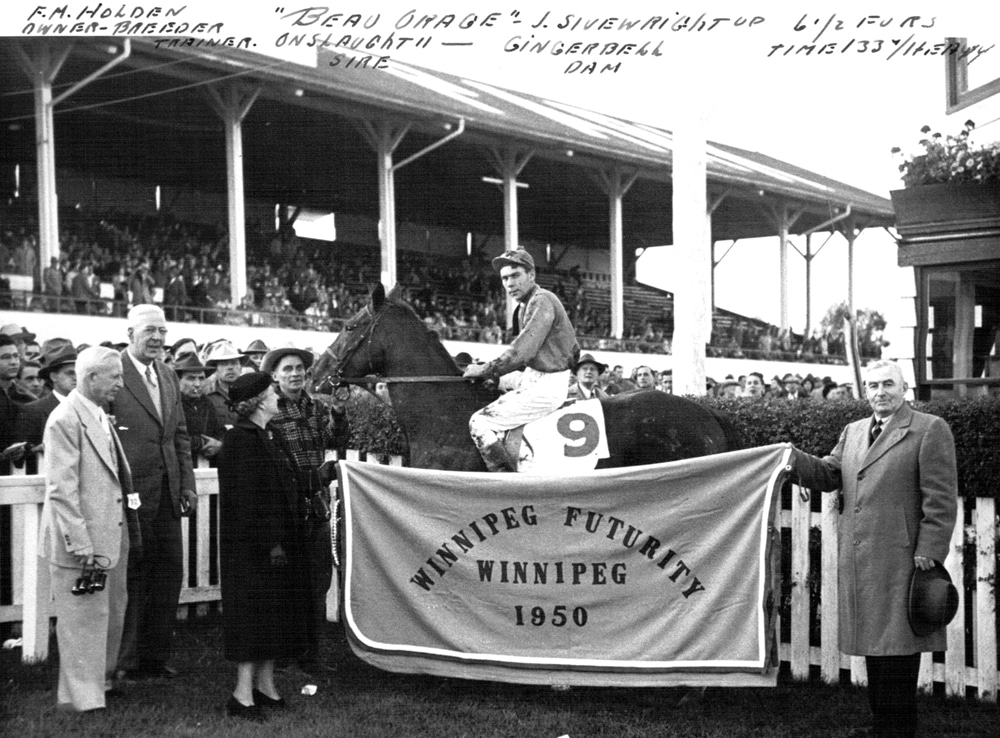
Frederick Morgan “Tiny” Holden was from the Hamlet of Midnapore, Alberta which would eventually become part of Calgary. Owner, trainer, breeder Holden stood six feet tall and weighed all of 250 lbs. It was said that he couldn’t recall the last time he weighed less than 200, so “Tiny” suited him just fine. Like Charlesworth, Holden won the Winnipeg Futurity on two occasions. The first in 1950 with Beau Orage and then at the Downs in 1962 with the filly Whisper Whim.
Holden got his start in the 1930s at an auction held in a dark basement in Calgary. The mare credited with heading up his breeding line was Nepperbell. The opening bid for her was $50, Holden bid $51 and the bidding abruptly ended. Nepperbell produced Barbells, who in turn had Gingerbell and one of her colts was western champion, Beau Orage.
Orage was a chestnut stallion whose career included wins in the Winnipeg Futurity (1950), Canadian Derby (1951) and the Alberta Derby (1951). He won the Western Canada Handicap twice (1952 & 1955) and finish second in the 1957 (Edmonton) edition. He also won the Whittier Park Handicap twice (1954 & 1955).
Beau also won the Polo Park Handicap in 1954, giving him a clean sweep of the Canadian bred races on the prairie circuit. He was the first horse to accomplish this feat and for all we know may be the only horse to do so. In 1959 Hall of Famer, Captain Stanley Harrison rated Beau Orage as the best western-bred he had ever seen.
Holden ran horses at the Downs in 1958 but didn’t return until 1962. In 1962 his filly, Whisper Whim carried Tiny’s green and orange silks to victory in the Osiris Plate and Winnipeg Futurity.
The late Don Gray told the story of a conversation he had with Holden. Tiny told Don, “The day you don’t get excited about a race is the day you get out of the business.”
Calgary’s William Joseph “Bill” Yates is our final stop on our tour of some iconic Alberta horsemen who frequented the racetracks of Winnipeg.
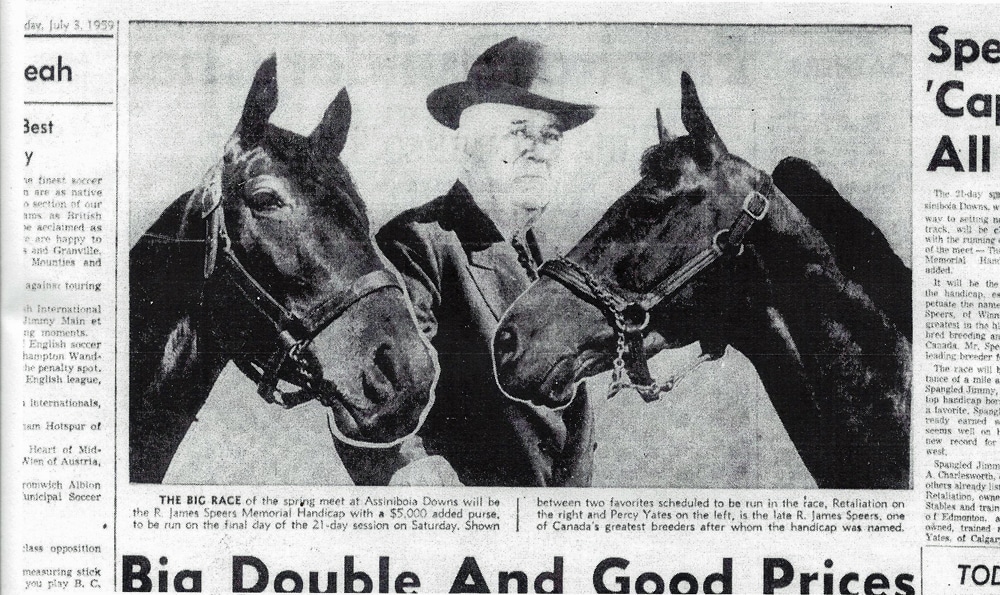
Yates began his assault of the prairie racing circuit around 1930. He was one of those guys with a one or two horse stable that travelled all over, racing his charges where he could. There were many times when he went hungry so his horses could eat. Over the years he built up his barn and became a successful owner-trainer and a good judge of horseflesh. In 1949 he won the 20th running of the Canadian Derby at Polo Park with Yates Senior.
Bill made himself at home in the early days of the Downs running his “Yates” horses. Over the years, there were many that bared his name, including: Percy Yates, Yates Senior, Fred Yates, Austin Yates, Yates Bid, Irish Yates, Janet Yates (named for his wife) and of course Bill Yates.
Ok, now this is where things get a little weird. You’d think that a personal connection would not be possible with Yates. After all, he raced more than 60 years ago and won the Canadian Derby 71 years ago.
Well a personal connection was not only possible, it happened. A lady, who we’ll call “Lou,” contacted the Downs a couple of years ago wanting to get in touch with the history guy with all the horse pictures. Why you ask?
Well, she was getting on in years and had old racing photos that needed a good home. As it turns out, Lou worked on the backside at old Polo Park and got to know Bill Yates among others. If you notice the photo that features Yates Senior’ Canadian Derby win of 1949 – you’ll see that it is signed “To Lou – Best Wishes Quiet Friend, Bill Yates.” I met with Lou in 2018 when she was 91 years young and chatted about her racing experiences at Polo.
“Quiet Friend?” Lou explained that she placed bets for Bill. Yates said he couldn’t make his bets, because punters would follow him to see who he was betting. Lou understood the concept of discretion and “quietly” took care of his bets. She marveled about the unique experience Polo offered back in the day. “Polo Park had such great atmosphere and character!”
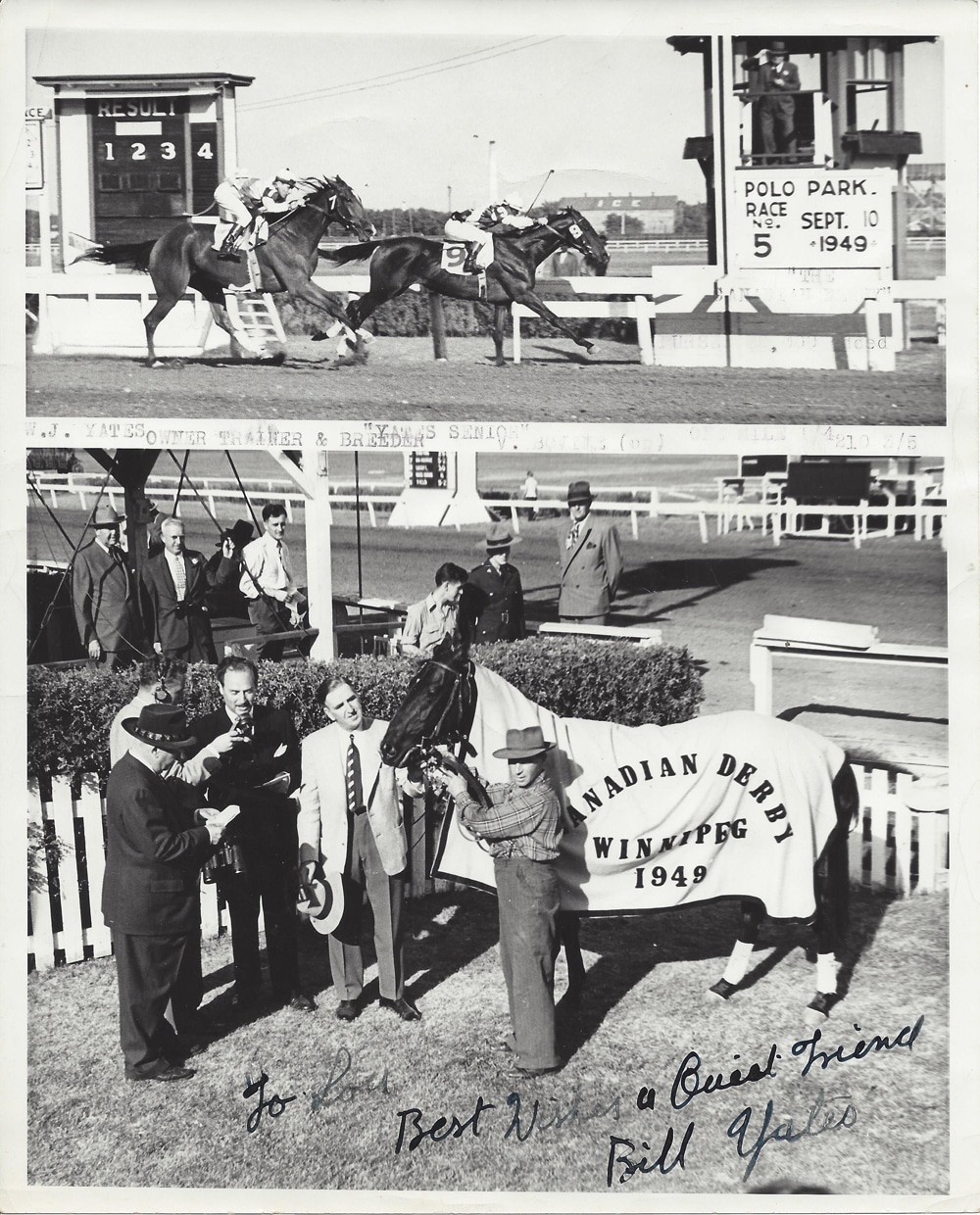
The trio of Albertans are gone now. There is no doubt these men found that special place in the hereafter where the track is always fast and the races are run on time.
Yates died in a car accident in November 1960. He was 59. Holden was 72 when he passed in June 1966. Jimmy Charlesworth was in his 94th year when he died in February 1985.
It’s somehow comforting to know that these men left their footprints along the shedrows of the Downs. Racing was special to Jimmy, Tiny and Bill. Whatever their motivation, horses and the sport was their passion.
Granted, times have changed, but if you look carefully that passion can still be found. It exists in the eyes, minds and souls of the men and women who make up our backstretch…
For they are the backbone of the industry.
